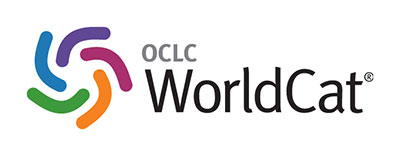Behavioral Activation in Major Depressive: A Bibliographic Review
DOI:
https://doi.org/10.26871/killcanasalud.v6i3.815Keywords:
Activación Conductual , Depresión , Trastorno Depresión Mayor , PsicoterapiaAbstract
Major Depression Disorder is the psychopathology with the highest prevalence worldwide, hence the importance of researching and developing evidence-based psychotherapeutic approaches, such as Behavioral Activation, that are effective and efficient to treat it. In this context, a bibliographic review was carried out that aimed to present the available evidence on the efficacy of Behavioral Activation in the treatment of Major Depression Disorder. Through a search of scientific articles published between 2016 and 2021 in the PubMed, ProQuest, Web of Science and Clinical Trials databases; using the combination of the following keywords: "Behavioral Activation", "Behavioral Activation", "Brief Behavioral Activation Treatment for Depression", "Brief Behavioral Activation Treatment for Depression", "Major Depressive Disorder" and "Major Depression Disorder ”; A total of nine Randomized Clinical Trials were found, published in Spanish or English, which included adult patients, older than 18 years, diagnosed with Major Depression Disorder, whose results place Behavioral Activation as an effective treatment to reduce depressive symptoms, that provides positive results from the fourth intervention session, and that promotes the remission of symptoms up to the 6-month follow-up after the end of the psychotherapeutic process. Despite this, aspects identified in the articles, such as: use of small samples, absence of follow-up periods and heterogeneity in the Behavioral Activation protocols used, limit the possibility of generalizing these results.
Downloads
References
Organización Panamericana de la Salud. Depresión y otros trastornos mentales comunes: Estimaciones Sanitarias Mundiales. Washington D.C: Editorial Organización Panamericana de la Salud; 2017.
Organización Mundial de la Salud. Depresión [Internet]. 13 de septiembre de 2021 [citado 26 de julio de 2021]. Disponible en: https://www.who.int/es/news-room/fact-sheets/detail/depression
Kessler R, Berglund P, Demler O, Jin R, Koretz D, Merikangas KR, et al. The Epidemiology of Major Depressive Disorder: Results from the National Comorbidity Survey Replication (NCS-R). Journal of the American Medical Association. 2003; 283(1):3095–3105.
Schulz P, Arora G. Depression. Continuum (Minneap Minn). 2015; 21(3):756–771.
Uphoff E, Pires M, Barbui C, Barua D, Churchill R, Cristofalo D, et al. Behavioural activation therapy for depression in adults with non-communicable diseases. Cochrane Database of Systematic Reviews. 2020; 8(8):1-65.
Asociación Americana de Psiquiatría. Manual diagnóstico y estadístico de los Trastornos Mentales. 5ta ed. Arlington: Editorial Panamericana; 2014.
Pérez-Padilla EA, Cervantes-Ramírez VM, Hijuelos-García NA, Pineda-Cortes JC, Salgado-Burgos H. Prevalencia, causas y tratamiento de la depresión mayor. Revista Bionmédica. 2017; 28(2):73–98.
Moras K. Twenty-five years of psychological treatment research on unipolar depression in adult outpatients: Introduction to the special section. Psychotherapy Research; 2006; 16(5):519–525.
Navas-Orozco W, Vargas-Baldares MJ. Abordaje de la depresión: intervención en crisis. Revista Cúpula. 2012;26(2):19–35.
Bianchi J, Henao Á. Activación conductual y depresión: Conceptualización, evidencia y aplicaciones en Iberoamérica. Terapia Psicológica. 2015;33(2):69–80.
Puspitasari A, Kanter J, Murphy J, Crowe A, Koerner K. Developing an online, modular, active learning training program for behavioral activation. Psychotherapy Theory Research Practice Training. 2013;50(2):256–265.
Jacobson NS, Dobson KS, Truax PA, Addis ME, Koerner K, Gollan JK, et al. A component analysis of cognitive - Behavioral treatment for depression. Journal of Consulting and Clinical Psychology. 1996;64(2):295–304.
Barraca-Mairal J. La Activación Conductual en la práctica: técnicas, organización de la intervención, dificultades y variantes. Análisis y Modificación de Conducta. 2016;42(165–166):15-33.
Kanter JW, Busch AM, Weeks CE, Landes SJ. The nature of clinical depression: Symptoms, syndromes, and behavior analysis. The Behavior Analyst. 2008;31(1):1-21.
Gollan J. Using Affective Differences to Predict Response to Behavioral Treatment for Major Depressive Disorder - ClinicalTrials.gov [Internet]. 2018 [citado 28 de julio de 2021]. Disponible en: https://clinicaltrials.gov/ct2/show/record/NCT00909220?view=record
Jacobson NS, Martell CR, Dimidjian S. Behavioral Activation Treatment for Depression: Returning to Contextual Roots. Clinical Psychology: Science and Practice. 2001;8(3):255–270.
Orgeta V, Brede J, Livingston G. Behavioural activation for depression in older people: Systematic review and meta-analysis. British Journal of Psychiatry. 2017;211(5):274-279.
Coto-Lesmes R, Fernández-Rodríguez C, González-Fernández S. Behavioral activation in group format for anxiety and depression. A systematic review. Sociedad Chilena de Psicología Clínica. 2020;38(1):63-84.
Dondé C, Moirand R, Carre A. L’activation comportementale : un outil simple et efficace dans le traitement de la dépression. Encephale. 2018;44(1):59–66.
Lozano-Ortiz J. Síntomas residuales y tratamiento de la depresión. SEMERGEN. 2009;35(1):43–9.
Organización Panamericana de la Salud. Clasificación Estadística Internacional de Enfermedades y Problemas Relacionados con la Salud.10ma ed. Washington D.C: Organización Panamericana de la Salud; 2003.
Richards DA, Ekers D, McMillan D, Taylor RS, Byford S, Warren FC, et al. Cost and Outcome of Behavioural Activation versus Cognitive Behavioural Therapy for Depression (COBRA): a randomised, controlled, non-inferiority trial. Lancet . 2016;388(1):871–880.
Collado A, Calderón M, MacPherson L, Lejuez C. The Efficacy of Behavioral Activation Treatment among Depressed Spanish-Speaking Latinos. Journal of Consulting and Clinical Psycholy. 2016;84(7):651–657.
Moshier SJ, Otto MW. Behavioral activation treatment for major depression: A randomized trial of the efficacy of augmentation with cognitive control training. Journal of Affective Disorders. 2017;210(1)::265–268.
Euteneuer F, Dannehl K, Del Rey A, Engler H, Schedlowski M, Rief W. Immunological effects of behavioral activation with exercise in major depression: An exploratory randomized controlled trial. Translational Psychiatry. 2017;7(5):1-10.
Hemanny C, Carvalho C, Maia N, Reis D, Botelho AC, Bonavides D, et al. Efficacy of trial-based cognitive therapy, behavioral activation and treatment as usual in the treatment of major depressive disorder: Preliminary findings from a randomized clinical trial. CNS Spectr. 2019;25(4):535–44.
Gros DF, Allan NP. A randomized controlled trial comparing Transdiagnostic Behavior Therapy (TBT) and behavioral activation in veterans with affective disorders. CNS Spectrums. 2019;25(4):535-544.
Gros DF. Transdiagnostic Psychotherapy for Veterans With Mood and Anxiety Disorders [Internet]. 2019 [citado 01 de agosto de 2021]; Disponoible en: https://clinicaltrials.gov/ct2/show/NCT01947647#contactlocation
Crits-Christoph P, Goldstein E, King C, Jordan M, Thompson D, Fisher J, et al. A Feasibility Study of Behavioral Activation for Major Depressive Disorder in a Community Mental Health Setting. Behavior Therapy. 2021;52(1):39–52.










